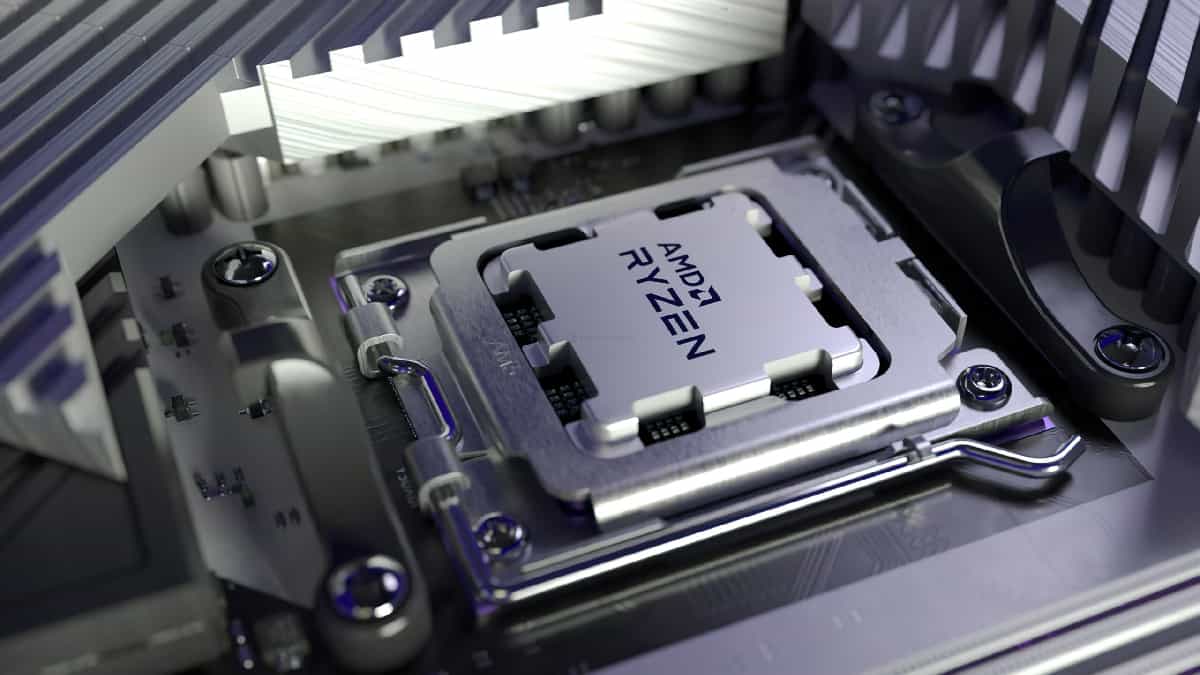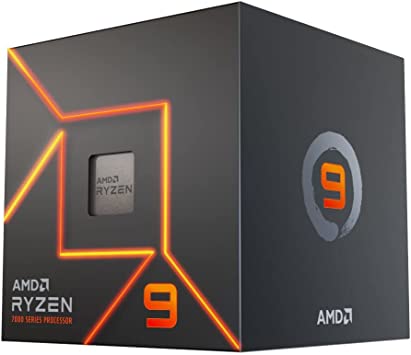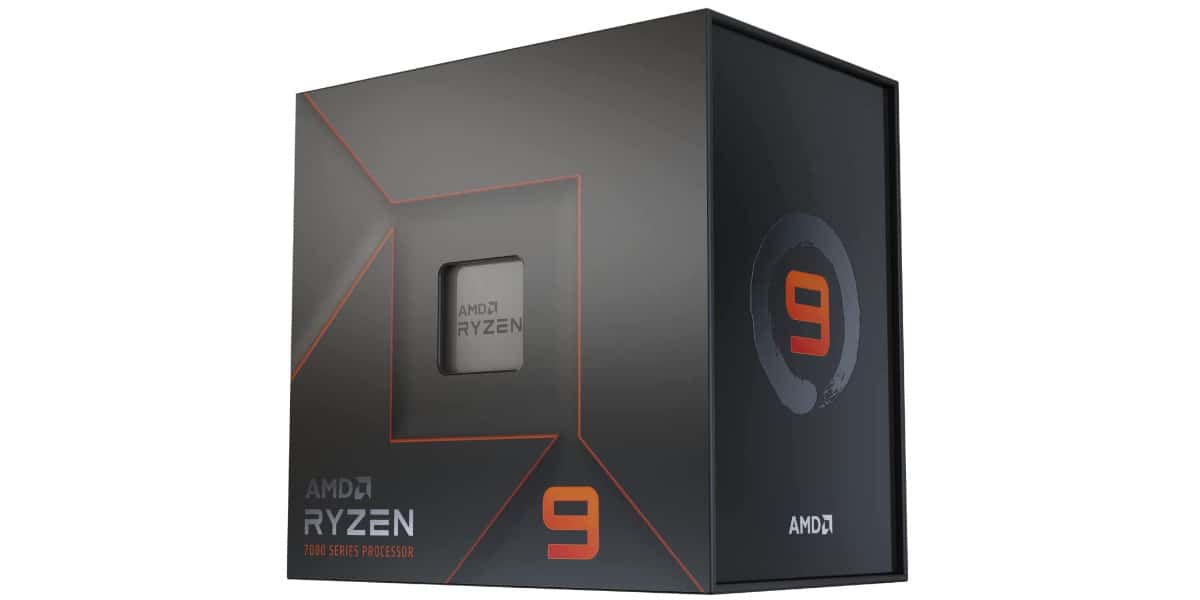Ryzen 9 7900 vs Ryzen 9 7900X

Table of Contents
AMD CPU sales didn't go as Team Red expected them to. Intel is taking a big chunk of the market in this regard. However, the brand has an ace under its sleeve that will bring them back to the top: its non-X 7000-series. With this new CPU, AMD is planning to deliver a low-cost high-performance CPU that will leave you with a smile on your face.
AMD will be fulfilling the promise of performance-per-watt it made back in 2022, and will be delivering the ultimate most efficient CPU. At least that's what it expects to happen. In this article, we will compare the Ryzen 9 7900 vs Ryzen 9 7900X, and the X vs the non-X versions. We'll check how much AMD had to sacrifice to build this great unit.
Prime Day is finally here! Find all the biggest tech and PC deals below.
- Sapphire 11348-03-20G Pulse AMD Radeon™ RX 9070 XT Was $779 Now $739
- AMD Ryzen 7 7800X3D 8-Core, 16-Thread Desktop Processor Was $449 Now $341
- ASUS RTX™ 5060 OC Edition Graphics Card Was $379 Now $339
- LG 77-Inch Class OLED evo AI 4K C5 Series Smart TV Was $3,696 Now $2,796
- Intel® Core™ i7-14700K New Gaming Desktop Was $320.99 Now $274
- Lexar 2TB NM1090 w/HeatSink SSD PCIe Gen5x4 NVMe M.2 Was $281.97 Now $214.98
- Apple Watch Series 10 GPS + Cellular 42mm case Smartwatch Was $499.99 Now $379.99
- ASUS ROG Strix G16 (2025) 16" FHD, RTX 5060 gaming laptop Was $1,499.99 Now $1,274.99
- Apple iPad mini (A17 Pro): Apple Intelligence Was $499.99 Now $379.99
*Prices and savings subject to change. Click through to get the current prices.
Ryzen 9 7900 vs Ryzen 9 7900X: Specs comparison
The Ryzen 9 7900 and 7900X are both based on the ZEN 4 architecture and have the same number of cores and threads (12/24) and L3 cache (76MB). The main differences between the two processors are their base clock speed, boost clock speed, and TDP.
The TDP (thermal design power) of the Ryzen 9 7900 is 65W, while the 7900X has a TDP of 170W. This means that the 7900X will likely produce more heat and will require a more robust cooling solution. AMD was capable of lowering the power needed by more than half with the non-X 7900. This is a big drop for a high-end CPU. Unfortunately, it had to sacrifice a lot of clock speed for that.
| Ryzen 9 7900 | Ryzen 9 7900X | |
| Architecture | ZEN 4 | ZEN 4 |
| Cores / Threads | 12 / 24 | 12 / 24 |
| Base clock speed | 3.7GHz | 4.7GHz |
| Boost clock speed | 5.4GHz | 5.6GHz |
| Cache L3 | 76MB | 76MB |
| TDP | 65W | 170W |
| MSRP | $429 | $549 |
The Ryzen 9 7900 has a base clock speed of 3.7GHz and a boost clock speed of 5.4GHz, while the Ryzen 9 7900X has a higher base clock speed of 4.7GHz and a slightly higher boost clock speed of 5.6GHz. This means that the 7900X will generally have faster single-core performance, but the 7900’s lower clock speeds may be more efficient for multi-core workloads.
This drop in frequency will cause the Ryzen 9 7900 to fall a bit behind in performance. However, the core efficiency of the Zen 4 architecture and the L3 cache of the build will still ensure enough raw power for the CPU to deliver as expected.
In summary, the Ryzen 9 7900X offers slightly higher clock speeds and single-threaded performance, but at the cost of a higher TDP and a more expensive price tag. The Ryzen 9 7900 may be more suitable for users who prioritize power efficiency and cost-effectiveness.
Ryzen 9 7900 vs Ryzen 9 7900X: Price
The Ryzen 9 7900 has an MSRP of $429, while the Ryzen 9 7900X has an MSRP of $549. This means that the 7900X is $120 more expensive than the 7900.
It’s worth noting that the MSRP is not always the final price that consumers will pay, as retailers may offer discounts or bundle deals. Additionally, the actual price of the CPUs can fluctuate depending on factors such as supply and demand, currency exchange rates, and taxes.
In summary, the Ryzen 9 7900X is more expensive than the Ryzen 9 7900 by $120, but it’s important to consider the complete system cost and their performance difference before deciding which one to choose.
Ryzen 9 7900 vs Ryzen 9 7900X: Performance
In today’s world of increasing energy costs, it’s worth considering processors that are energy efficient. AMD addresses this aspect of the market by offering a selection of 65W chips that use the same components as their higher-power counterparts, but with a significant reduction in power consumption.
One of the best examples of this is the Ryzen 9 7900. According to public benchmarks, it loses only 10% of its performance compared to the 7900X, while still delivering comparable gaming performance. Additionally, AMD has lowered the MSRP by $120, making it a more affordable option.
Although actual prices may vary, the Ryzen 9 7900 offers a compelling value proposition for consumers. It has impressive performance and is versatile enough to be used in both small form-factor systems and high-performance PCs, and it can also be overclocked for even more power.
So the Ryzen 9 7900 not only reduces price, increases the competition in the market, and fulfills AMD’s performance-per-watt promise, but it also delivers a more efficient, and user-friendly CPU. The 7900 ensures you can keep on using the same apps, platforms, and games possible on the 7900X for a way better price. Intel has to grab the chair if they want to compete against the ZEN 4 barricade.
Final thoughts
In summary, the Ryzen 9 7900 and 7900X are both powerful processors based on the ZEN 4 architecture, but they have some key differences that may make one more suitable for a particular user’s needs. The 7900X has higher clock speeds and therefore slightly better single-threaded performance, but it also has a higher TDP and is more expensive.
On the other hand, the 7900 has lower clock speeds, but it is more energy efficient, and more affordable. Users who prioritize single-threaded performance and don’t mind spending more on cooling and power may prefer the 7900X, while users who prioritize power efficiency and cost-effectiveness may prefer the 7900. Both processors are versatile and capable of handling a variety of workloads, and the choice will come down to the individual’s needs and budget.



